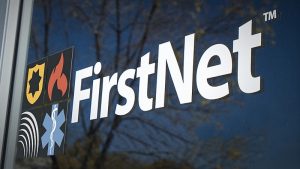As part of the Nov. 2, 2021 election, voters in Grand Rapids, Mich., approved an $11.3 million bond for Kelloggsville Public Schools. The bond will be used to build a new Science, Technology, Engineering, and Mathematics (STEM) building for high school students and a new media center for elementary students.
Demand for virtual mental health care among college students is surging, according to new data from telehealth company TimelyMD.
Ohio University was forced to expand its online learning offerings during the COVID-19 pandemic; however, as the university is moving back to more in-person learning it is seeing key opportunities that online learning continues to offer students at Ohio University and elsewhere.
New York City Mayor Bill de Blasio announced that New York City would spend the next three years building publicly-owned broadband infrastructure serving 1.6 million residents while partnering on immediate-term affordable internet connectivity for more than 250,000 residents.
The State of New York released its Excelsior Pass Blueprint, which Governor Kathy Hochul described as “a national framework to aid in the development and implementation of digital health credentials.”
Stanford University announced a new initiative that seeks to leverage the school’s technological capabilities to reach students who have historically been underserved by higher education.
To meet the heightened demand for unemployment insurance during the pandemic, the Ohio Department of Jobs and Family Services (ODJFS) made $477 million in fraudulent claims and $3.3 billion in overpayments, according to an audit released last week.
Nineteen states have sued the Biden administration over the COVID-19 vaccine mandate for Federal government contractors, according to separate lawsuits filed late last week.
What does technology really cost – and perhaps an even more critical question – how do you fund its acquisition?
U.S. Secretary of Commerce Gina Raimondo appointed 11 public safety, technology, and finance leaders to serve on the First Responder Network Authority (FirstNet Authority) Board. Stephen Benjamin, mayor of Columbia, SC, was named the FirstNet Authority’s new board chair.
Recent
-
 Trump Signs Order to Preempt State AI Laws and Push Single Federal Framework
Trump Signs Order to Preempt State AI Laws and Push Single Federal Framework -
 Government, Industry, Academia Collaboration Fuels AI Progress
Government, Industry, Academia Collaboration Fuels AI Progress -
 Indiana DOE Partnership Targets STEM, Digital Learning Tools
Indiana DOE Partnership Targets STEM, Digital Learning Tools -
 States, Schools Harness Data and Workforce Programs to Combat Fraud, Cyber Threats, and Service Outages
States, Schools Harness Data and Workforce Programs to Combat Fraud, Cyber Threats, and Service Outages









